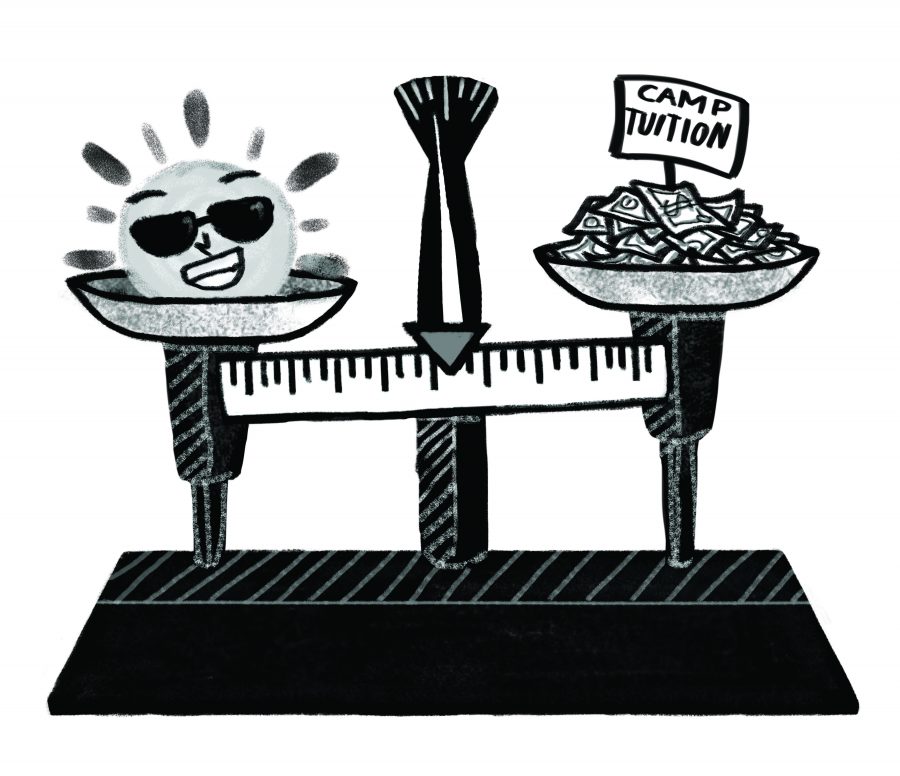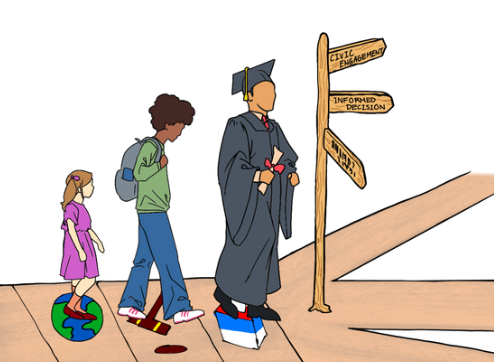In an attempt to help expand their kids’ educational experience, parents more often than not sign up for their kids to attend expensive camps over the summer. In these camp brochures, the managers will always hype up the type of “comprehensive academic activities” that attendees will be involved in. While the programs make those claims up front, if one actually attends one of those camps, he may find that summer camp programs aren’t as productive as they are hyped up to be.
The reason these camps are often a waste of time and money is that there are so many activities that can sidetrack the kids who attend these camps. While education should be the priority, too much time and effort is put on extraneous activities that focus on—as pessimistic and cynical as this may sound—having fun and getting the students to know each other. Students may go into these camps with the full expectation of learning but end up spending the first day playing ice-breaker games instead. The next few days also tend to be full of useless activities, while only a minority of the time is spent in class learning actual content.
In addition, the time that students spend in class learning may not even be productive. Of course there are professors at hand to aid the students’ learning. The way they are chosen for the position, however, isn’t always effective. The professors may lecture for little while, but most of the mentoring is done by teacher assistants who usually aren’t qualified instructors. Although they may have experience in their respective fields, the teacher assistants may not convey instruction in the best manner and teach with inefficient methods. Thus, this actually sets back the education of the enrolled students.
Even if the courses are taught by qualified individuals, the content of classes often does not match what is promoted by their brochures. The concepts taught and the programs used are extremely juvenile; class material is often too basic to be related or applied to real world situations. In addition, while the program might revel in the fact that they cover many different topics over the course of a few weeks, the content of the classes is often spread across many different fields. Because of this, the students don’t get a deep enough understanding in any certain area to be useful.
Parents shouldn’t be paying thousands of dollars to these institutions and students shouldn’t be wasting weeks of their life for some simple college touring or friendship building with people who may never be in their lives again. In fact, the majority of the activities at those summer camps can be done on your own time and don’t require dropping thousands of dollars.
If you want to actually receive a comprehensive educational experience, you should enroll in actual courses instead of attending camps that have questionable means of presenting their material. While these summer camps may talk up the great experiences that students will have, the programs do not normally live up to the hype. In fact, if a student wants to learn, summer camps are not the place to do it. To earn a truly wholesome education, high school students should enroll in classes, not camps, at actual institutions such as Foothill Community College or Stanford University. Otherwise, why bother?











Jane • Feb 6, 2020 at 9:46 pm
This is just my own opinion but I sent my children to summer camp because of my own experience. I’ve always been an advocate of learning that goes beyond the structured classroom. I love that their learning is fun and interactive. Sometimes Science and Math can be boring,right?
BTW, even with limited financial resources. Me and my husband have never mentioned that we’re putting in extra hours so we could send them to camp. This is just my two cents. Thank you and God bless.
P.S. If anyone is wondering where we sent our children. It’s at Calvary Road Christian School Camp Crusader | Summer Camp at Alexandria,Virginia.